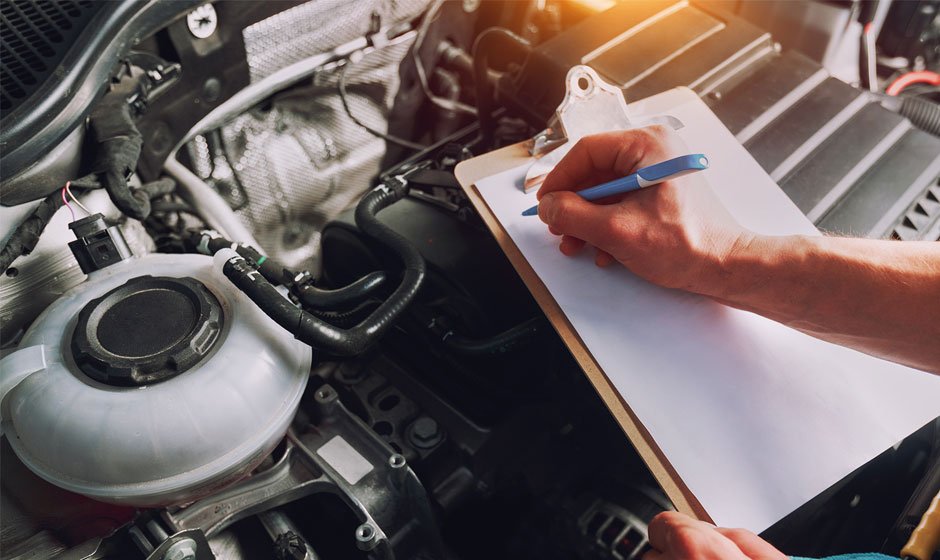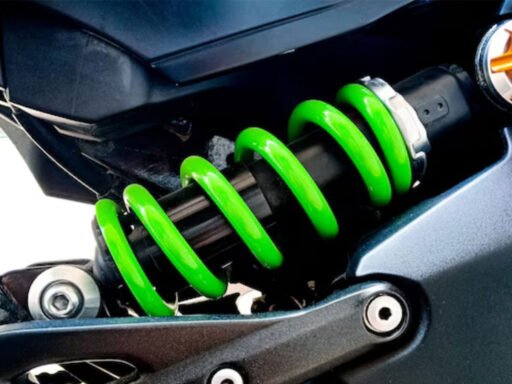Adhering to the car manufacturer’s recommendations for oil changes can notably enhance the car’s performance. Using fresh oil keeps the engine lubricated, preventing overheating and prolonging the engine’s lifespan. As engine oils deteriorate over time, they create sludge, potentially causing significant damage if not replaced. It is essential to follow the instructions in the car’s manual. Seek expert auto mechanics near you to ensure that your oil changes are performed correctly, reducing the risk of overfilling or using the incorrect type of oil.
Inspect and Replace Air Filters
Air filters are essential for keeping debris and dust out of the engine, which can harm it and lower its efficiency. These filters have the potential to become clogged over time, reducing the vehicle’s overall power and fuel economy. It should be checked regularly and replaced if it appears dirty or clogged. A clean air filter boosts fuel efficiency, ensures optimal engine performance, and can improve acceleration. This simple maintenance task can often be done at home, saving you a trip to the service center.
Check Tire Pressure and Tread
Sustaining the appropriate tire pressure is crucial for fuel economy and safety. Underinflated tires increase the risk of blowouts, uneven wear, and poor fuel economy. Too-inflated tires may ride rougher and wear more in the middle of the tread. Additionally, regularly check the tread for wear and tear using the penny test or a tread depth gauge to ensure the tires have sufficient grip. This preventive measure can help avoid blowouts and enhance overall vehicle performance. The National Highway Traffic Safety Administration recommends appropriate tire maintenance to preserve the proper tire pressure.
Keep the Battery Clean and Charged
A clean battery prevents corrosion, interrupting the electrical connection and leading to starting issues. Inspect the battery terminals for any white, ashy deposit buildup and clean them if necessary. To prevent vibrations that could impair the battery’s lifespan, make sure the battery is installed firmly. Checking the battery charge level periodically is crucial, especially before long trips or the start of the cold season. If your battery is more than three years old, consider getting it tested to avoid unexpected failures.
Replace Worn-Out Wipers
Visibility is critical to safe driving. Over time, wiper blades can wear out due to exposure to the elements, resulting in streaks, smears, or even chattering sounds during use. If you notice these signs, it’s time to replace the wiper blades. Properly functioning wipers are critical, especially during adverse weather conditions like rain or snow. It’s a good idea to check your wipers every six months and replace them annually or as needed to maintain optimal visibility.
Check the Brakes
Your brakes are one of your car’s most critical safety features. Regularly listen for squeaking or grinding noises that may indicate worn brake pads. Also, pay attention to any unusual vibrations or reduced responsiveness when braking. These signs suggest it’s time for a brake inspection and possibly replacing brake pads or rotors. In addition to ensuring your safety, keeping your brakes in excellent condition also extends the life of your car.
Monitor Fluid Levels
Fluids like coolant, brake, and transmission fluid are vital for the car’s operation. Check these levels regularly and top them off if needed. Use a dipstick or look at the reservoir markings to ensure fluids are within the recommended range. If you see any leaks, address them immediately to prevent more significant issues. Ensuring your vehicle has the right amount of fluids helps maintain its performance and prevents costly repairs.
Regularly Rotate and Balance Tires
To encourage uniform wear and extend the life of your tires, remember to rotate and balance them. Uneven tire wear may result in diminished handling, heightened road noise, and decreased fuel efficiency. Most manufacturers recommend rotating and balancing tires every 6,000 to 8,000 miles. This preventive measure improves handling, enhances safety, and maximizes tire life.
Replace Spark Plugs and Belts
Spark plugs and belts wear out over time and require regular inspections to prevent breakdowns. Worn spark plugs can lower engine performance, cause misfires, and cause poor fuel economy. Similarly, drive belts are essential for operating various engine components, and if they snap, they can cause significant damage. Replace these parts according to your vehicle’s maintenance schedule to ensure smooth and efficient engine operation.
Keep It Clean
A clean car not only looks good but can also prevent long-term damage. Regular washes remove dirt and grime that can cause rust and paint damage. Additionally, cleaning the interior, including vacuuming carpets and seats, dusting surfaces, and washing windows, preserves the car’s value and comfort. Regular detailing extends the life of the vehicle’s exterior and interior, making it more enjoyable to drive and more appealing for resale.
Protect Your Vehicle with All-Weather Car Covers
Maintaining a clean car isn’t just about aesthetics; it also helps protect your vehicle from long-term damage. One essential step to safeguard your car’s exterior is by using all-weather car covers. These covers are designed to shield your car from harsh weather conditions such as rain, snow, UV rays, and debris that can damage the paint and cause rust over time. By investing in a durable all-weather car cover, you can preserve your vehicle’s value, reduce the need for frequent washes, and prevent costly repairs.





